In today’s digitally connected world, the protection of sensitive information has become a paramount concern. With an increasing number of cyber threats and data breaches, ensuring the privacy and security of personal and corporate data has become essential. One of the most effective methods for safeguarding data is through the implementation of full disk encryption (FDE). This article delves into the importance of enabling FDE and explores the differences between BitLocker, a proprietary solution, and open-source alternatives like VeraCrypt.
The Significance of Full Disk Encryption (FDE):
Full disk encryption refers to the process of encrypting an entire storage device, such as a hard drive or solid-state drive, rather than individual files or folders. FDE provides comprehensive protection by encrypting all data, including the operating system and application files, rendering it unreadable without the appropriate decryption key. Here are some key reasons why enabling FDE is crucial:
1. Data Confidentiality: Full disk encryption ensures that sensitive data remains confidential, even if a device falls into the wrong hands. Unauthorized access to encrypted data is virtually impossible without the encryption key, safeguarding personal and business information from prying eyes.
2. Protection against Physical Theft: With the rising prevalence of theft and loss of mobile devices, FDE serves as a robust defense mechanism. Encrypting the entire disk makes it exceedingly difficult for thieves to extract and access valuable data, rendering stolen devices effectively useless to them.
3. Defense against Data Breaches: In the event of a data breach, FDE provides an additional layer of protection by making the stolen data unreadable. Even if attackers manage to infiltrate a system or network and exfiltrate encrypted data, they will be unable to utilize or exploit it.
4. Compliance with Data Privacy Regulations: Various data privacy regulations, such as the European Union’s General Data Protection Regulation (GDPR), mandate the protection of personal and sensitive information. Implementing FDE helps organizations adhere to these regulations and avoid significant penalties associated with data breaches.
BitLocker: Proprietary Solution by Microsoft:
BitLocker, developed by Microsoft, is a popular full disk encryption solution primarily integrated into the Windows operating system. Here are some notable features and considerations of BitLocker:
1. Integration: BitLocker is seamlessly integrated into the Windows operating system, allowing users to encrypt system drives, fixed drives, and removable storage devices. This integration ensures ease of use and simplified management for Windows users.
2. Trusted Platform Module (TPM) Support: BitLocker leverages TPM, a hardware-based security feature, to enhance the encryption process. TPM stores cryptographic keys, ensuring protection against unauthorized tampering or attacks on the encryption mechanism.
3. Group Policy Integration: BitLocker offers robust group policy management options, enabling centralized administration and configuration within organizations. This integration streamlines deployment and facilitates compliance with security policies.
VeraCrypt: Open-Source Alternative:
VeraCrypt, an open-source disk encryption software, emerged as a popular alternative to BitLocker. It offers a range of features and benefits, including:
1. Cross-Platform Compatibility: VeraCrypt is not limited to a specific operating system and supports Windows, macOS, and Linux. This flexibility allows users to encrypt and decrypt data across different platforms, enhancing data security in multi-OS environments.
2. Plausible Deniability: One distinctive feature of VeraCrypt is its ability to create hidden encrypted volumes within other encrypted volumes. This feature, known as plausible deniability, provides an extra layer of protection by allowing users to conceal sensitive data within seemingly innocuous files or partitions.
3. Encryption Algorithms and Options: VeraCrypt offers a wide array of encryption algorithms, including AES, Serpent, and Twofish, allowing users to choose the level of security that best suits their needs. It also supports features like key files and PIM (Personal Iterations Multiplier), further enhancing encryption strength.
4. Auditability and Transparency: Being an open-source solution, VeraCrypt’s source code is available for public scrutiny. This transparency allows independent security experts to audit the code, identify vulnerabilities, and contribute to its ongoing improvement, ensuring a higher level of trust and security.
In an era where data breaches and privacy infringements have become prevalent, full disk encryption plays a vital role in safeguarding sensitive information. Whether opting for a proprietary solution like BitLocker or an open-source alternative like VeraCrypt, enabling FDE is imperative to protect against unauthorized access, physical theft, and data breaches. Each solution offers its own set of features and considerations, allowing users to make an informed choice based on their specific needs and priorities. Regardless of the choice, the implementation of full disk encryption is a significant step toward bolstering data privacy and security in an increasingly vulnerable digital landscape.

